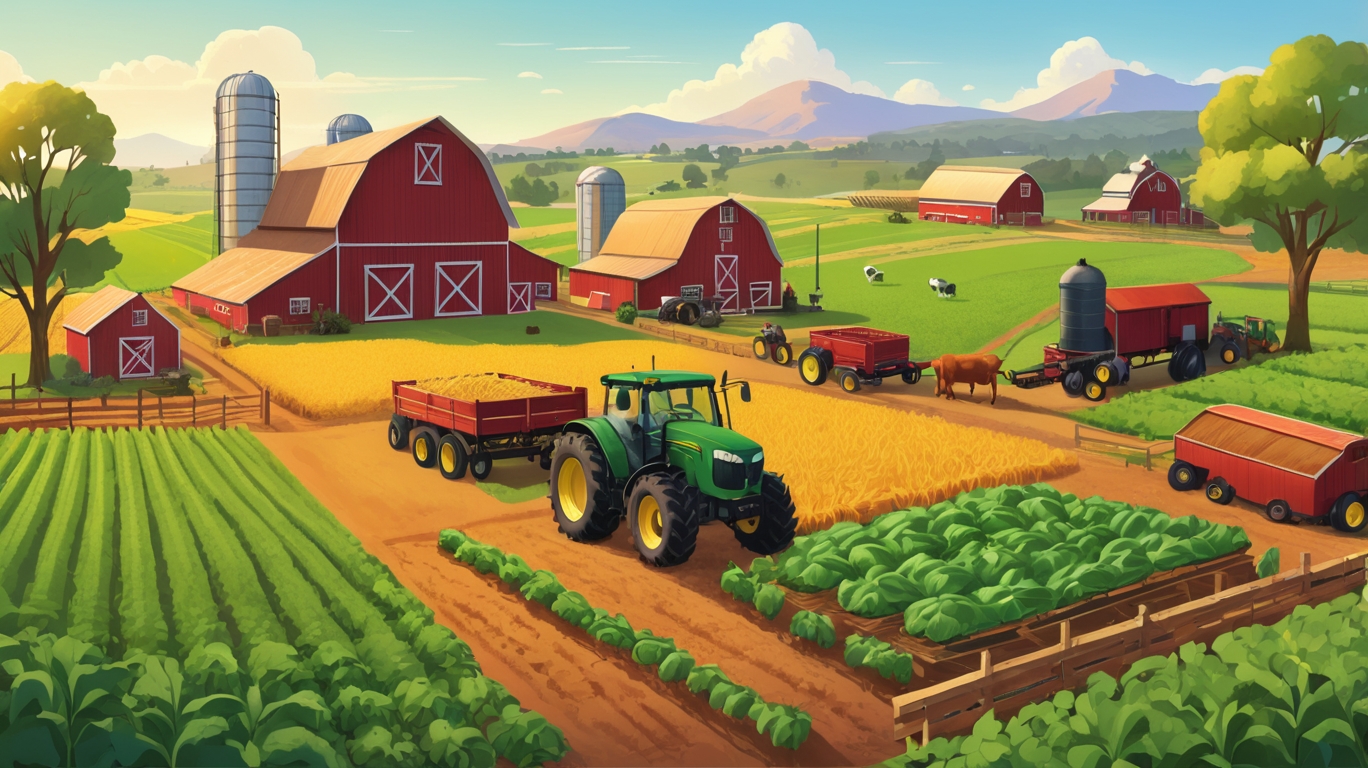How to Start a Profitable Farm Business
Starting a farm business can be a deeply rewarding venture—both financially and personally. Whether you dream of growing organic vegetables, raising livestock, or cultivating specialty crops, farming offers the opportunity to work closely with nature while building a sustainable income.
However, like any business, farming requires careful planning, patience, and a willingness to adapt. If you’re considering turning your agricultural passion into a profitable enterprise, here’s a calm and practical guide to help you get started.

1. Define Your Farming Niche
Before breaking ground, decide what type of farming aligns with your interests, skills, and market demand. Some profitable niches include:
- Organic produce (vegetables, fruits, herbs)
- Livestock (poultry, goats, cattle)
- Specialty crops (mushrooms, lavender, hemp)
- Agritourism (farm stays, workshops, pick-your-own operations)
Research local demand and competition to identify gaps you can fill.
2. Create a Solid Business Plan
A well-structured business plan keeps you focused and helps secure funding if needed. Key elements include:
- Mission statement – What is your farm’s purpose?
- Market analysis – Who are your customers?
- Financial projections – Startup costs, pricing, and revenue goals.
- Operational plan – Land, equipment, and labor needs.
Even a simple plan can guide your decisions as you grow.
3. Secure Land and Resources
If you don’t already own land, consider:
- Leasing – A cost-effective way to start without a large upfront investment.
- Purchasing – If financially feasible, owning land provides long-term stability.
- Urban farming – Utilize rooftops, vacant lots, or hydroponics for small-scale production.
Ensure the soil quality, water access, and climate suit your chosen crops or livestock.
4. Start Small and Scale Gradually
Many successful farmers begin modestly—planting a few acres or raising a small herd—before expanding. This approach minimizes risk and allows you to refine your techniques.
5. Focus on Sustainable Practices
Sustainability isn’t just good for the environment—it can also reduce costs and attract eco-conscious buyers. Consider:
- Regenerative farming (improving soil health naturally)
- Water conservation (drip irrigation, rainwater harvesting)
- Integrated pest management (reducing chemical use)
6. Build Your Market Presence
Profitability depends on consistent sales. Explore multiple revenue streams:
- Farmers’ markets & CSAs (Community Supported Agriculture)
- Local restaurants & grocery stores
- Online sales & delivery
- Value-added products (jams, cheeses, soaps)
Networking with other farmers and joining agricultural cooperatives can also open doors.
7. Keep Learning and Adapting
Farming is a dynamic field—weather, pests, and market trends change constantly. Stay informed through:
- Workshops & online courses
- Local farming associations
- Mentorship from experienced farmers
8. Stay Patient and Persistent
Success in farming rarely happens overnight. There will be challenges, but with steady effort, adaptability, and passion, your farm can grow into a thriving business.
Final Thoughts
Starting a profitable farm business is both an art and a science. By planning carefully, staying flexible, and nurturing your land with care, you can cultivate not just crops, but a fulfilling and sustainable livelihood.
Would you like help refining your farm business idea? Feel free to share your thoughts in the comments. Happy farming! 🌱